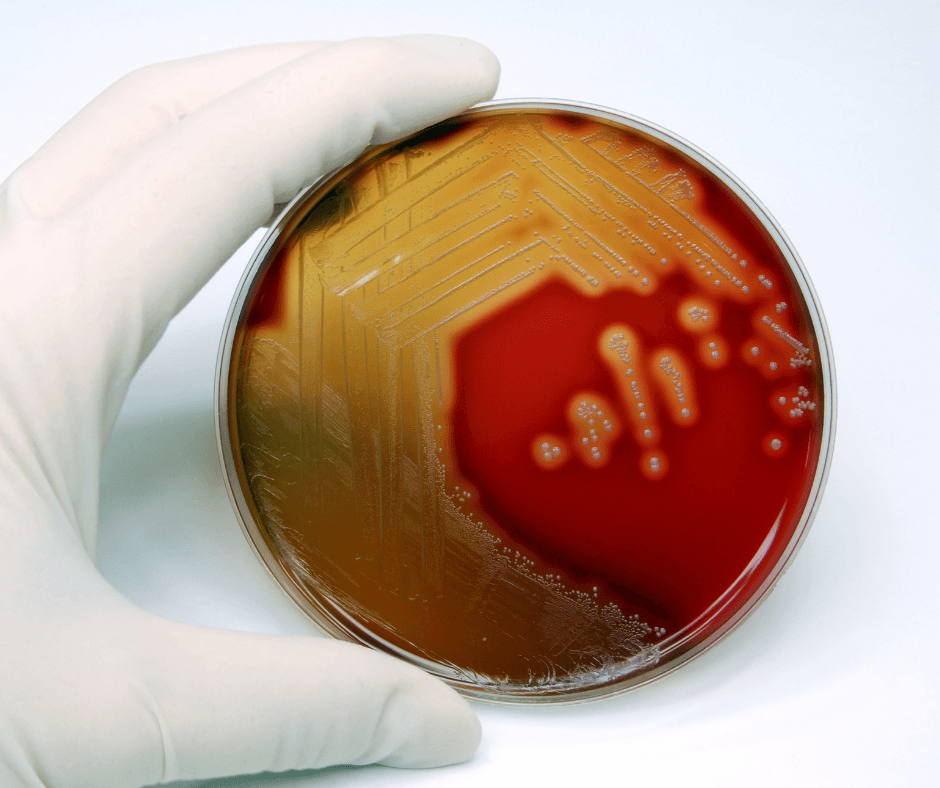Most expectant mothers are very careful during their pregnancy and take good care of their baby and themselves. Especially women who have been through a long journey with many IVF attempts are very careful to do everything right. It is well known that you should not smoke or drink alcohol during pregnancy. However, infections with pathogens such as bacteria are not so easily influenced by the mother. Bacteria, in particular, live normally in some organs and are even necessary in small concentrations for normal organ function. For the mother, this is usually an advantage rather than a disadvantage, but for the baby, who does not yet have a fully developed immune system, these bacteria can be a danger.
What is a biome?
A biome is the totality of all bacteria that live in the human body without acting as pathogens. Rather, the microorganisms have a supportive effect on organ function. The stomach and intestines are, of course, particularly well known as biomes. Here, bacteria release substances that stimulate digestion or break down substances from food. The skin and vagina also have their own biomes. In the vagina, the acidic environment can be maintained, preventing other pathogens from entering.
However, a biome always requires an intact immune system, as the saying "the dose makes the poison" applies here too. If the mucosa is damaged, allowing bacteria from the organ to enter the tissue, severe disease can result. Infections also occur when bacteria are transferred to another part of the body during surgery. Newborn babies are mainly protected by the mother's immune system in the womb and are therefore particularly vulnerable during and shortly after birth. This means that bacteria that are always present in the body can cause a lot of damage.
What are B streptococci?
There are many different types of bacteria that can harm a newborn baby. In particular, venereal diseases such as gonorrhoea, syphilis or chlamydia play an important role. Today, however, we are mainly concerned with the bacteria that belong to the B group of streptococci. In contrast to the diseases just mentioned, streptococci are often found in the vagina without the mother being affected.
Streptococci are round, spherical bacteria that grow on a nutrient medium like a string of pearls. Streptococcus agalacticae is the main cause of problems during pregnancy. It can be found in the vagina of up to 20% of women. However, this does not mean that it will cause disease in the baby in all cases. If the bacteria get into the embryo, they can cause meningitis. Otherwise, Streptococcus agalacticae is often responsible for wound infections and urinary tract infections.

How do streptococci get to the child?
In principle, there are several ways in which pathogens can reach the baby in the womb. The easiest way is through the blood, as the mother's blood circulation is connected to that of the baby through the placenta. Streptococci, for example, can use this route if they enter the mother's blood through an infected wound. During pregnancy, the baby is protected from the bacteria in the vagina by the amniotic sac. This means that infection usually occurs during birth. By this time, the amniotic sac has ruptured and the baby has to push itself through the contaminated birth canal.
Neonatal meningitis
The biggest threat from strep and other bacteria is meningitis in newborn babies. The baby's immune system is still very weak, so bacterial infections are very serious. This is called sepsis. The whole body is affected, but meningitis is the most serious. It is divided into an early and a late form.
The early form manifests itself in the first three days after birth. It is usually caused by bacteria from the birth canal. Unlike meningitis in adults, some of the most important and characteristic symptoms, such as stiff neck, are absent in newborn babies. For this reason, the mortality rate for this form of meningitis is enormously high, at 50%. Babies with potential sepsis must therefore be closely examined and monitored so that they can be treated with antibiotics in time.
Late form occurs after the first 72 hours. In this case, the infection does not necessarily come from the birth canal; it can also be transmitted from other people. It is usually no longer streptococcus, but other types of bacteria.

«Take carpaccio, sushi and medium-rare steak off the menu.»
What testing options are available?
The bacteria in the vagina are very easy to identify. They are grown on a culture medium in the laboratory after a smear test and can then be identified by staining and their behaviour on different culture media.
The presence of bacteria alone is not enough to diagnose an infection. Antibodies must be present, which are produced by the immune system in response to the pathogen. The baby can produce its own antibodies from around the 16th week of pregnancy. To detect these, the umbilical cord has to be punctured to take a blood sample.
What you can do to prevent
Of course, it is always better not to get an infection in the first place. There are a number of precautions that expectant mothers can take that will not only protect against strep throat. Many germs are transmitted through raw meat, for example. You should therefore avoid eating carpaccio, sushi and medium-rare steaks. All other raw foods should be washed thoroughly to remove the bacteria. If you are planning to get pregnant, get out your vaccination record and check that all your vaccinations are still active. If they are not, you should get them or have them refreshed.
The most important thing is that you, as a mother, stay healthy and take care of yourself during your pregnancy. If your baby has a fever or other signs of illness after birth, such as vomiting or refusing to feed, you should take him or her to hospital immediately. If sepsis is caught in time, babies usually respond well to treatment with antibiotics and do not suffer any damage. So mindfulness is very important, but please don't make yourself crazy about this. Stressing yourself out will not help you or your child. If you have specific questions, it's best to ask your midwife or doctor.
